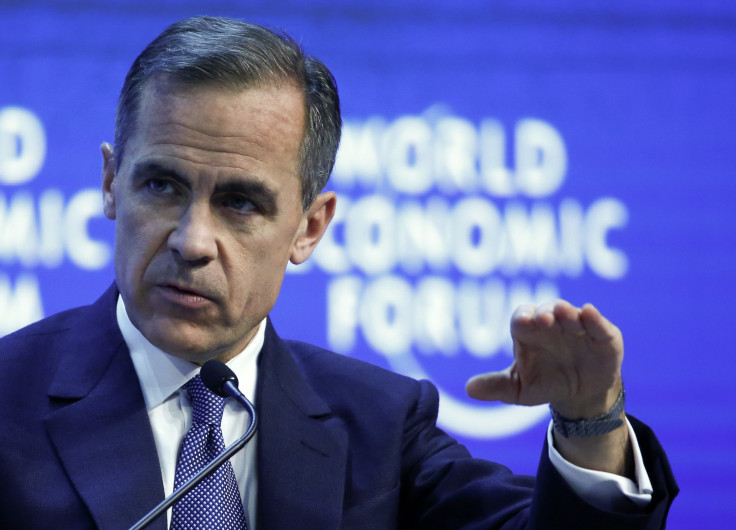Britain Headed For Negative Inflation; Situation To Improve By End Of Year: Bank Of England

The Bank of England (BoE) warned Thursday that inflation is likely to fall below zero. However, it said there was no threat of persistent deflation. BoE Governor Mark Carney said he expected inflation to fall due to dipping oil prices, but believed there was little long-term risk.
"The UK is not experiencing 'deflation'," Carney said in a letter to Finance Minister George Osborne, Reuters reported.
During its quarterly report on inflation, BoE said that inflation was likely to pick up at the end of the year, rising quickly and that markets were responding to expectations of no interest rate rises this year, Financial Times reported.
The central bank stressed that its forecasts were dependent on many uncertain conditions, and probed the possibility of cutting interest rates to less than 0.5 percent, if global events meant that Britain risked entering a deflationary spiral.
This marks a change from its previous policy, where it said cutting interest rates would offer little benefit and squeeze out some lenders who were too weak to cope with such low rates.
The overall tone of the report was positive, with the central bank reporting that the economy was almost operating at full capacity once more. It revised its growth forecasts upward, and predicted that wage growth would also increase, suggesting that voters were likely to feel the effects of Britain’s economic rebound before the general election on May 7.
Current interest rates in the U.K. are diverging widely from BoE’s projections of 2 percent, seemingly contradicting the otherwise strong economic indicators the country is showing.
Carney stressed in his letter that circumstances would change as the world’s economic outlook improved, and there was no structural weakness indicated in the figure.
Britain’s economic outlook has improved steadily since 2013, though both real wages and productivity are well below their pre-2008 levels.
© Copyright IBTimes 2024. All rights reserved.











